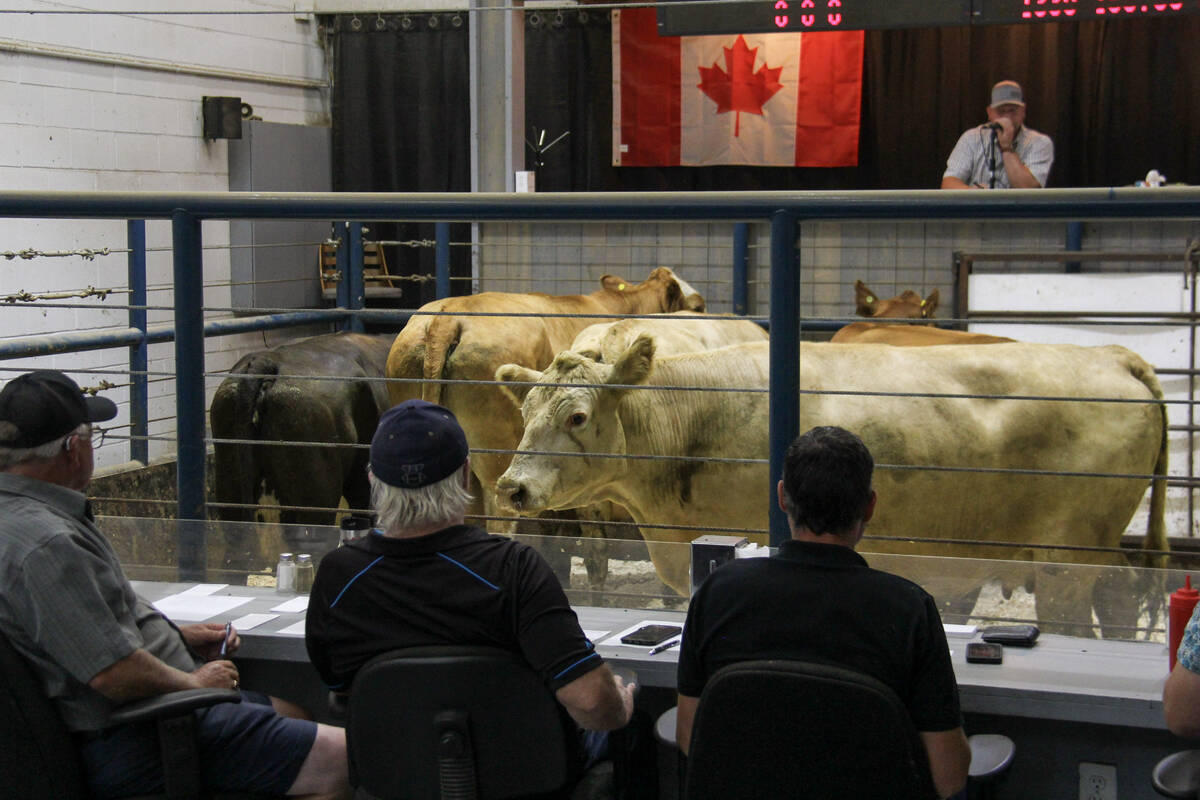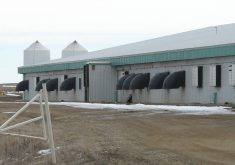A bill introduced in the Manitoba legislature March 19 will make it easier for livestock producers to rebuild or renovate existing barns.
Bill 19, The Planning Amendment Act (Improving Efficiency in Planning) proposes changes to how livestock operations are approved by municipalities, and other matters related to zoning bylaws and appeals.
Under the bill, owners of livestock barns needing upgrades or reconstruction will be able to proceed without requiring more municipal hearings.
The legislation proposes increasing the minor variance threshold, so producers can replace barns — and even increase their size between 10 and 15 per cent — so long as their operations are in compliance with existing bylaws, said Municipal Relations Minister Jeff Wharton.
Read Also

Manitoba cattle prices, Feb. 25
Your weekly table of price ranges for beef cattle from seven Manitoba auction markets during the week ending Feb. 24, 2026.
It would also allow authorities of municipalities to grant zoning bylaw requirements such as square footage, height and parking spaces without need for additional council hearings.
- Read more: Uncertainty puts brakes on hog barns
The rationale is that many barns are now nearing the end of their lifespan and need replacing so this will expedite the approval process, he said.
Nothing with respect to environmental protections is changing, he said.
“We haven’t done anything with the environmental process,” he said. “It remains the same.”
In a news release Minister of Agriculture Ralph Eichler called the proposed legislation “a balanced approach to the livestock review and approval process that improves animal safety and maintains a high standard of environmental accountability.”
A spokesperson for Manitoba Pork said the hog industry welcomes the change because it will eliminate what’s long been viewed as “a senseless flaw” in the existing act.
Currently, even minor barn upgrades trigger lengthy review processes, said Mike Teillet, manager of sustainable development with Manitoba Pork.
- Read more: Bill 24 to allow new hog barns
“We had a situation just recently where a guy was literally adding a kitchen (to the barn) for his staff and he had to go through this whole process of a conditional use technical review process, because he was adding on to the barn,” he said.
This also simplifies the process for producers eyeing expansions to improve the barn’s structural environment to accommodate not more but larger animals. Sows produce larger litters and pigs are bigger animals than when hog barns were first constructed in the mid-1990s.
“What’s happening is that the barns are becoming cramped for space,” Teillet said.
“This will allow farmers to expand their barns for animal welfare purposes without having to go through the full bureaucratic process.”
Teillet said the hog industry anticipates as much as 75 per cent or more hog barns will require major renovations over the next five to eight years.
Another change in the proposed legislation is to harmonize hearing process requirements with those already established in The Municipal Act, Wharton said.
The change will set a minimum requirement of 25 voters objecting to a development to trigger a conditional use hearing. Currently, even if one person objects, further hearings are required during the adoption or amendment of zoning bylaws.
Association of Manitoba Municipalities (AMM) president Chris Goertzen said municipalities want this change.
“This allows it to be clear and concise and it also creates a clear understanding for the public for what is required,” he said.
“This is going to reduce the amount of files that go to the municipal board and it leaves more decisions with municipalities.”
A secondary provision of the bill which sets 50 per cent of those notified of public hearings to trigger further proceedings is meant to address situations where, in thinly populated areas, there may not necessarily be 25 voters to register objections, Goertzen noted.
In that case, if, for example 10 persons are notified, any five registering an objection would trigger a municipal board hearing.
“Obviously municipalities will clearly hold hearings in good faith and make decisions appropriately,” Goertzen said. “It’s just that this leaves decisions in the hands of municipalities more readily than it does a politically appointed board.”
Under the bill an applicant can also make an appeal to the municipal board in the event of a rejection or conditions imposed; presently there are no provisions for appeal.
Other changes would include:
- Setting a 30-day timeline for municipal board reviews of development plan bylaws;
- Introducing the option for members of the public attending planning hearings to opt to receive notice by email;
- Introducing a technical review pro-cess for aggregate quarry proposals;
- Requiring municipalities to review their livestock operations zoning bylaws within one year; and
- Dissolving the Interdepartmental Planning Board.
The board has not met since 2014, Wharton said.
















